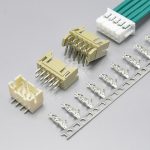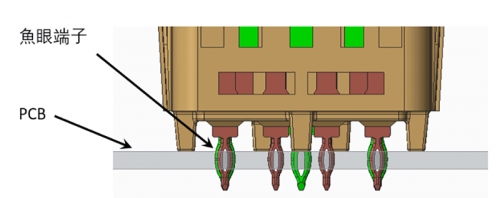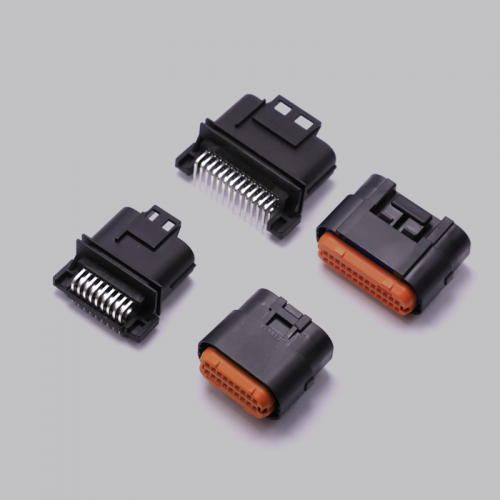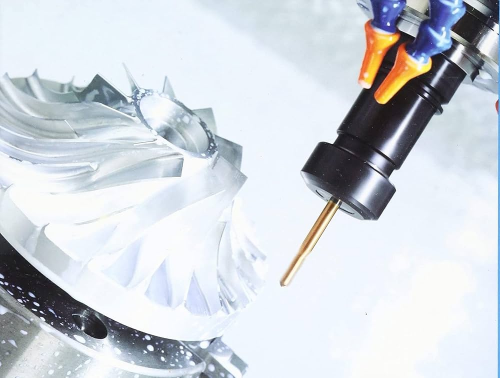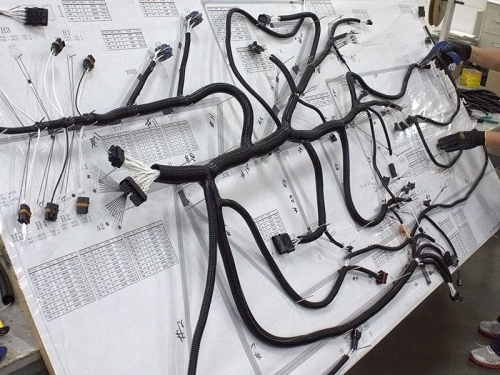Choosing the right China Telecom Connector is crucial for ensuring efficient and reliable telecommunications connections. Here is a detailed guide to help you select the most suitable connector based on specific needs.
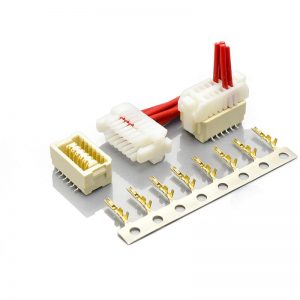
Understand Your Needs
First, it is essential to clarify the application scenario of the connector. For example, is it for use in data centers, base stations, home broadband equipment, or industrial automation systems? Different application scenarios may have varying requirements for connectors. Data centers usually require high-density, high-speed data transmission connectors, while base stations may focus more on the connector’s weather resistance and signal transmission stability. Home broadband equipment needs economical, easy-to-install connectors, and industrial automation systems demand higher durability and reliability.
Additionally, consider the environmental conditions where the connector will be used, including temperature range, humidity, waterproof and dustproof ratings, etc. For example, connectors used in outdoor base stations or industrial sites need to be highly durable and have high protection levels to ensure stable operation under extreme conditions. In indoor data centers, the protection level requirements are relatively lower, but the requirements for transmission speed and stability are higher.
Evaluate Technical Specifications
When choosing China Telecom Connector, it is crucial to evaluate its technical specifications. First is the frequency range support. Different telecom applications have different requirements for frequency ranges. For example, high-frequency applications like 5G base stations need connectors that can support higher frequencies to ensure effective signal transmission and reception.
Secondly, data transmission speed is critical. Different application scenarios require different data transmission speeds. For instance, data centers need high-speed data transmission connectors to support large-scale data flow. The transmission speed of the connector affects data transmission efficiency and directly impacts the overall system performance and user experience.
The connection method is also a key factor. Select the appropriate connection method based on the device interface, such as SMA, N-type, F-type, etc. Different devices may require different types of connectors. Choosing the right connection method ensures seamless connection and stable signal transmission between devices.
Durability and reliability are also important indicators, especially in scenarios requiring frequent plugging and unplugging or use in harsh environments. The durability and reliability of the connector affect its lifespan and the stability of the entire system. Choosing connectors with high durability and reliability can reduce maintenance frequency, lower maintenance costs, and improve overall system performance.
Compatibility and Standards
When selecting China Telecom Connector, it is also necessary to consider its compatibility and industry standards. First, choose connectors that comply with relevant industry standards and certifications, such as ISO, IEC, ROHS, etc. These standards and certifications not only guarantee the quality of the connectors but also ensure their reliability and safety. Connectors that meet industry standards typically have better performance and higher reliability and can work stably in various application scenarios.
Device compatibility is another important factor to consider when selecting connectors. Ensuring the connector is fully compatible with existing devices can prevent mismatches during use. Checking device manuals or consulting suppliers can help confirm the connector’s compatibility, ensuring the most suitable connector is chosen for smooth connection and stable signal transmission between devices.
Consider Future Expansion
When selecting connectors, it is also necessary to consider future expansion. Choosing connectors with good scalability can save costs on system upgrades or increased demand without replacing the entire system. Moreover, technical support and service are factors to consider when selecting connectors. Choosing brands or suppliers that provide excellent technical support and after-sales service ensures timely solutions to problems encountered, reducing downtime caused by faults or issues, and improving system reliability and stability.
Cost-Effectiveness
Cost-effectiveness is a crucial factor when selecting connectors. Choosing the highest quality connectors within the budget ensures meeting performance requirements while controlling costs. Very low-priced connectors may be unreliable in quality, but the most expensive ones are not necessarily needed either; the key is to choose the most cost-effective product.
Additionally, considering long-term usage and maintenance costs is essential. High-quality connectors may have a higher initial cost, but their durability and reliability can reduce long-term maintenance and replacement costs, improving the overall economic efficiency of the system. Therefore, a comprehensive consideration of initial and long-term costs can help select the most cost-effective connectors.
Conclusion
Choosing the right China Telecom Connector requires a comprehensive consideration of application scenarios, technical specifications, environmental conditions, compatibility, future expansion, and cost-effectiveness. By thoroughly evaluating these factors, you can ensure the chosen connector not only meets current needs but also adapts to future developments. High-quality connectors can significantly enhance device performance and reliability, providing solid support for telecom systems.
Understanding and clarifying needs is the first step in choosing the right connector. Different application scenarios and environmental conditions have different requirements for connectors. Selecting connectors that meet actual usage environments and application needs ensures their optimal performance in operation. Evaluating technical specifications involves focusing on key indicators such as frequency range, data transmission speed, connection method, durability, and reliability, ensuring the chosen connector meets technical requirements, guarantees stable signal transmission, and system reliability.
Considering compatibility and standards ensures the connector’s match with existing devices, avoiding incompatibility issues during use. Choosing connectors that meet industry standards and certifications ensures their quality and performance. Future scalability and technical support are also important factors to consider when selecting connectors. Choosing connectors with good scalability can reduce future upgrade and expansion costs. Brands providing excellent technical support and after-sales service can offer timely and effective solutions when problems arise.
Lastly, considering cost-effectiveness helps meet performance requirements while controlling costs, choosing the most cost-effective connectors. A comprehensive consideration of initial and long-term maintenance costs can improve the overall economic efficiency of the system.
Through the detailed guidance and suggestions provided above, it is hoped that you can make the wisest decision when selecting China Telecom Connectors, choosing the most suitable product to ensure the efficient and stable operation of the system. High-quality connectors can enhance device performance and provide reliable support for the entire telecom system, achieving long-term economic benefits and technical advantages.
